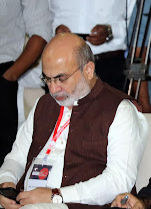With health budget slashed, Pima warns of systemic impact
Association says development budget slash will hit hospitals, disease control, and medical education
IV ReportProf DrAtif Hafeez Siddiqui
KARACHI: The Pakistan Islamic Medical Association (Pima) has
criticised the federal government’s proposed 16% cut in the budgetary
allocations for the Ministry of National Health Services, Regulations and
Coordination (NHSR&C) for the upcoming financial year, terming it
"unjust" amid the country's deepening healthcare crisis.
According to the budget document
presented before the National Assembly on June 10, the federal allocation for
the health sector has been set at Rs46.10
billion for the fiscal year 2025–26 — a significant reduction from the Rs54.87 billion allocated for 2024–25.
While operational (non-development)
expenditures have been increased, the development component of the health
budget has suffered a major blow. The Public Sector Development Programme
(PSDP) budget for the NHSR&C has been slashed to Rs14.34 billion, down from Rs27
billion in the outgoing fiscal year — a reduction of nearly 47%.
In a statement, Pima President (Central), Prof DrAtif Hafeez Siddiqui, expressed concern over the shrinking health development budget. “This substantial cut comes at a time of escalating healthcare demands in the country and will severely affect key areas such as the construction and upgradation of hospitals and Basic Health Units (BHUs), procurement of medical equipment, medical education, disease surveillance systems, and training of healthcare professionals,” he said.
Prof Siddiqui pointed out that although operational spending—primarily salaries and administrative costs—has been increased, the long-term development of healthcare infrastructure and services is being neglected.
“Pakistan is grappling with a dual
burden: the rising prevalence of non-communicable diseases like diabetes,
cancer, and heart disease, along with continued threats from infectious
diseases such as tuberculosis, hepatitis, and HIV/AIDS,” he stated. “In this
context, reducing development allocations undermines the country’s ability to
respond effectively and weakens the resilience of the overall health system.”
Pima further noted that Pakistan’s public health expenditure remains under 0.9% of GDP — one of the lowest in the region and far below international standards.
Calling for urgent corrective
measures, Prof Siddiqui urged the government to restore and enhance the health development budget to strengthen
infrastructure, ensure continuity in disease control programmes, and build a
sustainable, responsive, and equitable healthcare system. He also emphasised
the need to prioritise both communicable and non-communicable disease control,
along with robust investment in medical
education and workforce training.
(File photos, images courtesy: Social Track)








Comments
Post a Comment